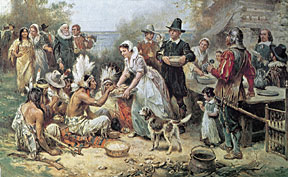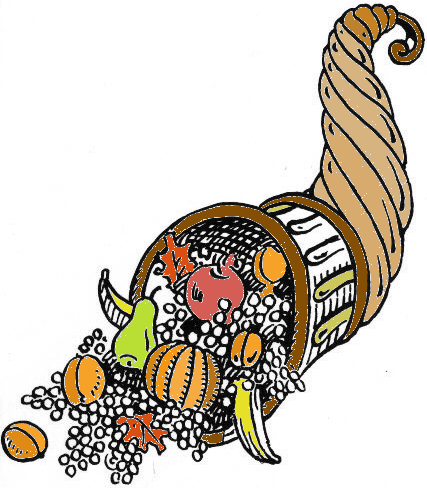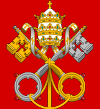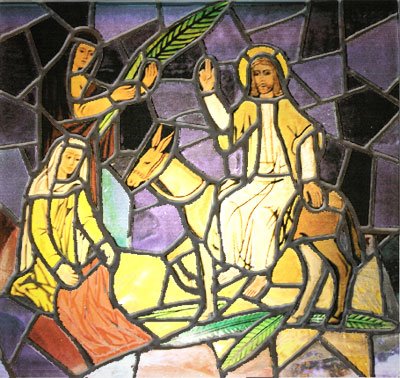The Enlightened Truth about Christmas
 Today is St. Lucia’s Day, the first of the 12 Days of Light honoring the Star of Bethlehem. Tonight we light up the decorations!
Today is St. Lucia’s Day, the first of the 12 Days of Light honoring the Star of Bethlehem. Tonight we light up the decorations!
But, today is also a good time to reflect on the importance of Christmas.
 Today is St. Lucia’s Day, the first of the 12 Days of Light honoring the Star of Bethlehem. Tonight we light up the decorations!
Today is St. Lucia’s Day, the first of the 12 Days of Light honoring the Star of Bethlehem. Tonight we light up the decorations!
But, today is also a good time to reflect on the importance of Christmas.
 Thanksgiving is often recognized as an inter-cultural holiday, celebrating the cooperation of European Pilgrims and Native Americans, but it is also an interfaith holiday. After all the Wampanoag were not Christian.
Thanksgiving is often recognized as an inter-cultural holiday, celebrating the cooperation of European Pilgrims and Native Americans, but it is also an interfaith holiday. After all the Wampanoag were not Christian.
For American Reform Unitarians* the interfaith nature of Thanksgiving actually reinforces its Christian importance, for we see Christianity not as a religion defined against others, but as an idiom of Truth that can be translated into other idioms.
[This Thanksgiving message was originally published in 2008]
True Christianity has from its inception been a religion that sees the good in members of other religions.
Jesus praised the faith of the pagan centurion over that of his fellow Jews, and used a member of the hated Samaritan sect (considered heretics at the time) as a symbol of goodness in explicit contrast to leaders of his own faith community. When ministering to the Greeks, the Apostle Paul even went so far as to claim that the “Unknown God” long worshiped in Hellenistic religion was in fact the very same God of Abraham and Jesus.
Some might dismiss Paul’s assertion as a marketing technique, and perhaps so. However, the willingness to seek Christian truth in other religions validates Christianity as a religion about reality rather than a religion merely about itself.
There is, in every religious community, a moral tension between loyalism and realism. By realism here, we do not mean the “Christian Realism” of Niebuhr, but realism in the sense that religion is seen as an idiomatic description of reality, therefore open to other forms of description.
This is opposed to the loyalist approach in which that description becomes a mere catechetical shibboleth, a catch-phrase or password, distorting the religion into an entrenched camp isolated (by its own members) from the rest of the universe.
A religion truly about the Creator cannot be an enclave in Creation. The truth of God does not need to be spread across God’s own work by a tiny minority of creatures; God’s truth is evident throughout the universe.
Justin Martyr, despite his sainted status, is likely the primary culprit in this God-denying loyalist tradition as he was the first to attribute other religions entirely to the action of devils. One step more “realistic” is the approach of Paul and other missionaries who attempted to exapt the language and imagery of the cultures they encountered for Christian truth.
But, while this approach treats idiom properly as a tool rather than the stuff of religion itself, it is still prone to error due to the implication that only the language of other religions is valid, not the underlying reality that language describes.
Again, this sort of religion implies an agoraphobic god who fashions a vast universe only to cower in one tiny corner of it, charging mere humans with braving the immeasurable remainder of it in his stead. Religion that genuinely worships the Almighty Creator does not insult God in this way.
The idiomatic approach of Reform Unitarianism takes realism to its full measure by recognizing that some of the underlying ideas of other religions must be valid if the God we worship is indeed the God of all Creation, and not merely an imagined god of ethnic or sectarian autolatry.
For us, the Thanksgiving story represents two groups of God’s children, speaking in different idioms, coming together for a precious moment of peace and communion. The words and labels each used to discuss the ultimate nature of reality and its moral implications may have differed, but if there is such an Ultimate Truth then it must be the same Ultimate Truth for all, despite the difference in languages used to describe it.
The politicized, sectarian, God-denying, and autolatrous view is that the Native Americans were un-Christian heathens. The truly Christian, universal, Creator-affirming, moral view is that while the compassion the Wampanoag showed the Pilgrims may not have been “Christian” charity, it was certainly Christian charity.
Have a wonderful feast day, and give thanks for all of the blessings in your life!
_
* American Reform Unitarians revere Thanksgiving’s Harvest Thursday as one of the Four Great Thursdays alongside Declaration Thursday, Garden Thursday, and Ascension Thursday.
REPOSTED FROM 2009
 Today is the first of the Twelve Days of Thanksgiving: Diversity Sunday!
Today is the first of the Twelve Days of Thanksgiving: Diversity Sunday!
While Diversity Sunday may not be as important as Remembrance Thursday or Harvest Thursday itself, this introduction to the celebration is vital to the full vision of Thanksgiving, as we remember that good things come to our lives through meetings.
These may be meetings of different opinions, as in the Continental Congress where America’s Founders met. They may be meetings of different families, as at a wedding, or different religions, as in the Christmas story of three Magi traveling to Judea. They may be different cultures, or even different business theories or scientific hypotheses. All new things, and therefore all new good things, come to our lives through meetings with others.
It is important to value diversity not simply for the sake of conflict-aversion, a “politically correct” way of not hurting anyone’s feelings, but to value it in full and rational recognition of the great value that difference plays in individual and societal growth. Diversity is a rational expression of the virtue of Hope, openness to good turns in life.
And, for Reform Unitarians this day’s message of being open to diversity is particularly meaningful as it falls on Sunday, the Holy Day of many other Christians of different denominations. Happy Diversity Sunday!
Today is the first of the 12 Days of Thorns, during which we contemplate the tragic errors of the past. This dozenal opens the Spring Interval, also called the Rose Season.
The first Day of Thorns is Lucifer’s Day, marking the anniversary of the First Council of Nicaea in which the Josiac error of conflating the Son and God was repeated.
This is also the traditional feast day of Lucifer Calaritanus — whom some Trinitarians honor as “Saint Lucifer” — one of the principle proponents of the conflationist error against Christian monotheism.
An excellent case study in partisan hypocrisy, Lucifer is famous for publishing two works advising Emperor Constantius not to meet with Arians nor forgive them, yet also a work advising the Emperor not to condemn the conflationist bishop Athanasius of Alexandria in absentia.
On this day, we should not only lament the unravelling of the original Church, but also contemplate the beams in our own eyes, that we do not follow where Nicaea and Lucifer transgressed.
 Today is Loyal Thursday, the 4th Thursday after Easter and the Ultimate Thursday of the 12 Days of Trust, the second dozenal of the Ascension Season.
Today is Loyal Thursday, the 4th Thursday after Easter and the Ultimate Thursday of the 12 Days of Trust, the second dozenal of the Ascension Season.
The 12 Days of Trust are a celebration of the clear-minded virtue of Faith (πίστις in Greek, fidelis in Latin), and Loyal Thursday is a day to feast in fidelity to the things we know to be true. Faith is the virtue of steadfast thinking, the antidote of confusion, and with Hope a vital half of the highest Christian virtue of Love.
 Reform Unitarianism feels a particularly close kinship with the Roman Catholic Church, despite that it is the institution that adopted the apostasy of Trinitarianism. Roman Catholicism retains the sense of the ancient pedigree of Christianity, which more recent off-shoots (which nevertheless imagine themselves reformatory) fail to project.
Reform Unitarianism feels a particularly close kinship with the Roman Catholic Church, despite that it is the institution that adopted the apostasy of Trinitarianism. Roman Catholicism retains the sense of the ancient pedigree of Christianity, which more recent off-shoots (which nevertheless imagine themselves reformatory) fail to project.
This is why it pains us to witness the perennial sex abuse scandals in the Roman Catholic Church, now even shaking the Throne of St. Peter. Only a few are calling for Pope Benedict XVI to resign, but many more are questioning the Church’s policies on clerical celibacy.
For Reform Unitarians — who accept both the marriage of priests and ordination of women — it is clear that the Vatican’s sex-related troubles stem from the same 4th Century political intrigues that pinned the Church to Imperial power and the conflationist theology that eventually became Trinitarianism.
 Palm Sunday commemorates the day Jesus entered Jerusalem on the back of a colt (or donkey) with throngs of Messianic enthusiasts paving the way with palm fronds. Celebrations of this holiday therefore often include palms.
Palm Sunday commemorates the day Jesus entered Jerusalem on the back of a colt (or donkey) with throngs of Messianic enthusiasts paving the way with palm fronds. Celebrations of this holiday therefore often include palms.
In some regions, however, this tropical plant has historically been difficult to acquire, particularly when shipping methods were still primitive and slow. For this reason, local trees were often substituted for palms, and the name of the holiday revised to match.
This raises an intriguing question: Were Christians who celebrated “Yew Sunday” — because their culture knew yews and did not know palms — practicing a heresy because they violated the explicit accounts in scripture?
We don’t think so. In fact, to invest the palm tree (or any other created thing) with significance over and above the spiritual meaning it conveys would verge on idolatry.
This is why AUR takes an idiomatic, rather than dogmatic, approach to religious creed. This approach allows us, even as creedal Christians, to look beyond the particulars of the life of Jesus of Nazareth to see the Word of God as expressed in other regions, other cultures, and even other religious traditions.
 Earlier this year, a guest posting at the Unitarian Universalist Growth Blog discussed the perennial problem of high membership turnover in the Unitarian Universalist Association (UUA), eliciting comments that highlight the tension between UU and its Christian origins, Christian origins that American Unitarian Reform (AUR) has chosen to embrace rather than hold at a safe arms’ length.
Earlier this year, a guest posting at the Unitarian Universalist Growth Blog discussed the perennial problem of high membership turnover in the Unitarian Universalist Association (UUA), eliciting comments that highlight the tension between UU and its Christian origins, Christian origins that American Unitarian Reform (AUR) has chosen to embrace rather than hold at a safe arms’ length.
As a matter of etiquette among general friends and allies, Reformed Unitarians tend not to contrast ourselves with UU as often we do Trinitarians. But, to understand the issues facing “Unitarianism” in America, it is appropriate occasionally to revisit the philosophical history of American Unitarianism, and explain the differences between our two divergent paths.
Or, more accurately, between the path of AUR and other Christian Unitarians, and the lack of an explicit path in the UUA.
 It is quite appropriate that the (actual) birthday of Martin Luther King Jr. falls on the 9th Day of Defiance in the AUR calendar, in the middle of Nika Week commemorating when competing factions stood together against oppression in the Byzantine Empire, just as multiracial crowds gathered before Dr. King stood together against Jim Crow oppression in the United States.
It is quite appropriate that the (actual) birthday of Martin Luther King Jr. falls on the 9th Day of Defiance in the AUR calendar, in the middle of Nika Week commemorating when competing factions stood together against oppression in the Byzantine Empire, just as multiracial crowds gathered before Dr. King stood together against Jim Crow oppression in the United States.
But Martin Luther King is significant to AUR for other reasons, not only in his ecumenical attitude, but also the purity of the way he spoke of God’s relationship with Creation and his commitment of character to the will of God.
 Today is St. Lucia’s Day, the first of the 12 Days of Light honoring the Star of Bethlehem. Time to put up the lit decorations! But, also a good time to reflect on the importance of Christmas.
Today is St. Lucia’s Day, the first of the 12 Days of Light honoring the Star of Bethlehem. Time to put up the lit decorations! But, also a good time to reflect on the importance of Christmas.
A celebration of the Nativity was never a foregone conclusion in Christianity. Tertullian’s list of major holidays among North African Christians in the 2nd Century makes no mention of Jesus’s birthday. Origen specifically denounced the idea of celebrating the birth of Jesus in the 3rd Century as something more fitting to the followers of a “pharaonic king.”
Despite this evidence that the earliest Christians did not observe Christmas, ironically some have used the December 25th celebration of the Nativity as “proof” that Jesus was a fictional character, invented as the last in a long series of sun gods considered by ancient mystics to be born/reborn on the Winter Solstice.
While this absurd and counter-factual argument holds no water historically, the evidence certainly does demonstrate that aspects of this pre-existing Middle Eastern holiday were added to Christian worship just as northern European traditions associated with Yuletide—including the tree—were also later adapted to Christianity.
Indeed, Christmas continues to accrete moving imagery and morally-instructive traditions (like Rudolph the Red-Nosed Reindeer) even today.